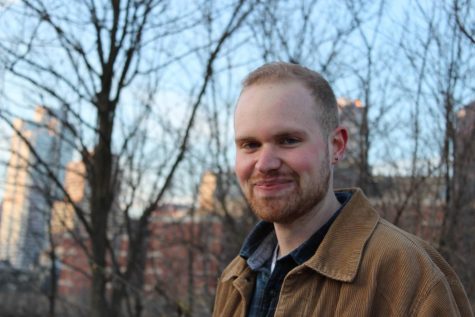‘You’ season 2 critiques social media, societal privilege
“You” Season 2 on Netflix is captivating, with a plot of manipulation, deceit, twists and turns that I could not have seen coming, and intertwined with the plot are questions about social media and privilege.
Joe Goldberg, played by Penn Badgley, returns from a disturbing first season of stalking, kidnapping and murder, but this time he has fled to Los Angeles under a stolen identity: Will Bettelheim. Will/Joe finds a new love interest and, without spoiling anything, makes mistakes similar to season 1, but also discovers new, evil impulses.
This is not a review of the series. I, for one, did not enjoy season 1 too much, as it was disturbing and creepy. Season 2, while arguably more disturbing, is so riveting and suspenseful that it left me feeling uneasy. Why? Because I found myself — no matter how many murders he commits — still rooting for Will/Joe.
And what about his seemingly “genius” capability of finding out everything about a person? Is this skill really “genius?”
The series begs two important questions. First, what is considered stalking in the age of social media? And, as Badgley asks in a Variety interview, how far are we willing to go to excuse an average white male for his actions?
Often times, Will/Joe finds out nearly everything about a person by doing a quick online search. He learns their address, hobbies, friends and even their personal history. It is flat-out creepy how quickly Joe labels a person based on their social media presence.
Is it creepy, though? If someone posts everything about their life online, it is out there for everyone to see. Is Joe really the only one who tries to find something out about a person through a Google search? Therefore, if the information is already publicly available, is it wrong to look for it?
I’m sure many would argue it’s not wrong to look at, or for, that information; rather, it is erroneous how Joe acts upon this information and uses it to his despicable advantage. Perhaps the series serves as a warning for viewers to secure personal data online. I personally keep most of my accounts private and only add people that I know. I realize I sound like my parents, but I don’t really want random people seeing my photos. They aren’t interesting, anyways.
To extrapolate further on the weird side of the internet, metadata is stored in photos, and someone’s location can sometimes be found based on that data.
Joe is definitely not using social media for good, but he’s not really doing anything with it the average teenager couldn’t do. In fact, the average teenager could probably do more than Joe, as his 15-year-old neighbor, Ellie, shows him how to use Instagram.
As I was watching the season, I often found myself rooting for Will/Joe to escape and get away with things. But why? He is, by definition, a serial killer. How could I defend a serial killer?
The new season gives viewers a bit of an insight into Joe’s backstory. He had quite a traumatic childhood, which seems to explain some of his extreme narcissism and hyper-protective tendencies. This molded him into a more sympathetic character: Joe had a rough upbringing and an unstable father figure.
The classic difficult childhood: Ronald Reagan faced a poor upbringing. His father was a drunk but he went on to become President of the United States. We celebrate people who face adversity in their childhood and meet success, as we should. It is extremely difficult to “come from nothing” and make a name for yourself. Not everyone uses societal privileges or sheer luck to make something for themselves.
We want Joe to succeed. He seems like a nice guy, and he’s been through traumatic experiences. But, what if Joe were a person of color? I think society would be slower to excuse his behavior and root for him. He certainly would not have been released from prison as quickly as he is for a misdemeanor in the show’s second season.
I think “You” also serves as a criticism of affluenza, defined as a psychological malaise supposedly affecting wealthy young people. Love Quinn, Will/Joe’s major love interest in season 2, comes from the wealthy and powerful Quinn family. Equipped with lawyers and influence in Southern California, the family is able to investigate others and cover up their own wrongdoings.
Love’s twin brother, Forty, is a recovering alcoholic with many ideas but little motivation to do anything. The twins often talk about their “golden parachute” — they have their parent’s wealth at their disposal — and how this parachute places stress on their personal relationships.
While Will/Joe is not as privileged as the Quinns, the Quinns are similarly excused for their actions due to their power and prestige. They can essentially get away with anything with little to no consequences.
Joe is crazy: he’s a serial killer, a stalker and a narcissist. He rarely finds himself getting into trouble, and audiences root for this. Through this, the series shines a spotlight on questions of social media and privilege.

Ethan Woodfill is a senior from Pittsburgh, Pennsylvania. He is an Environmental Science & Sustainability and Political Science double major with an...




